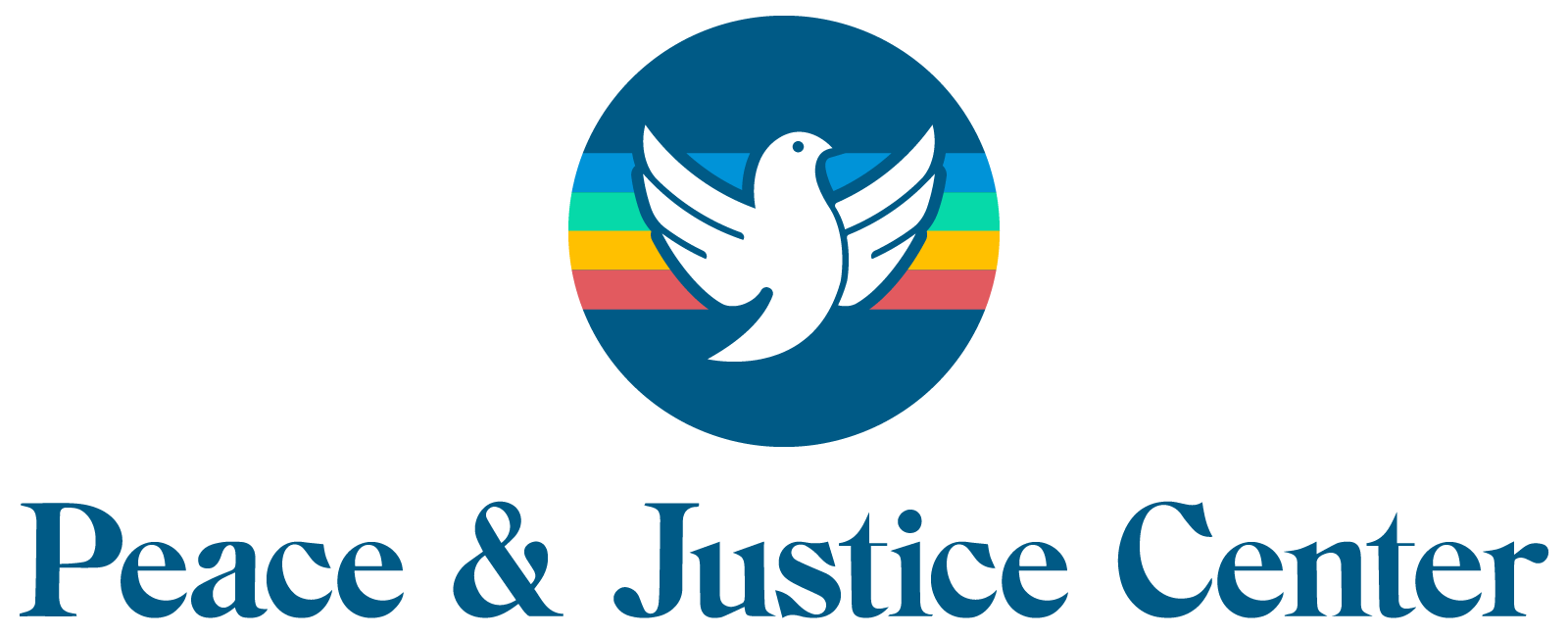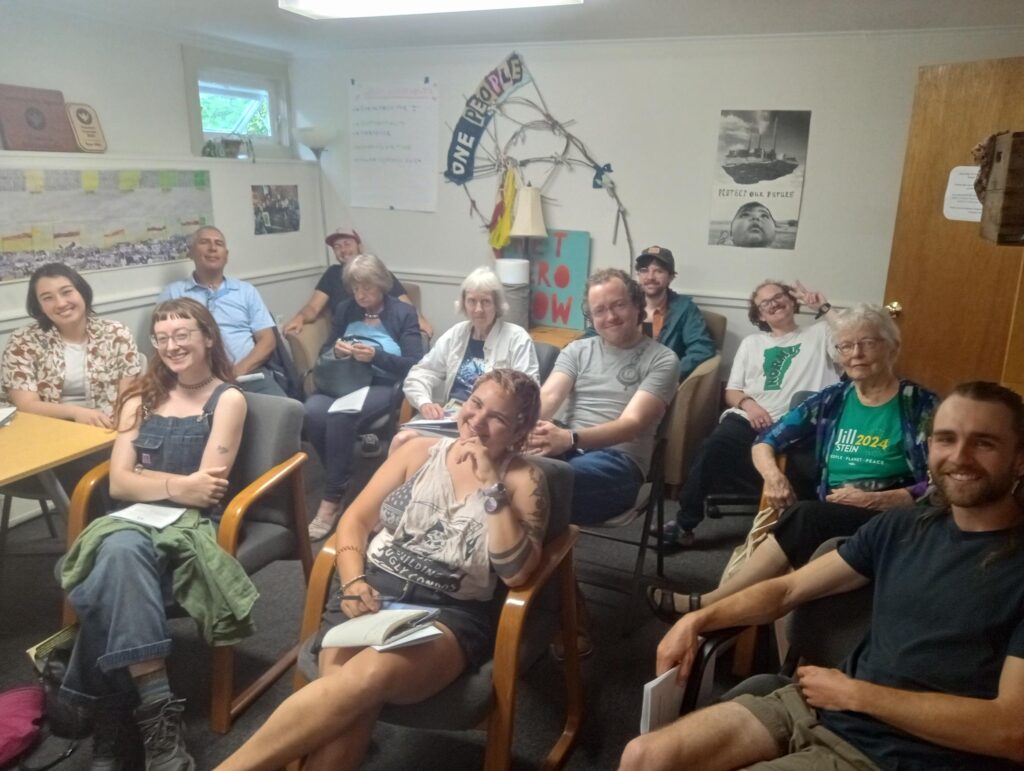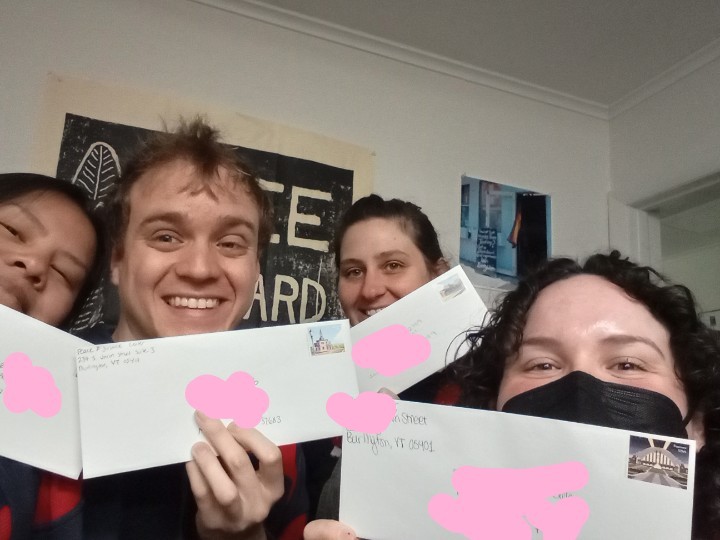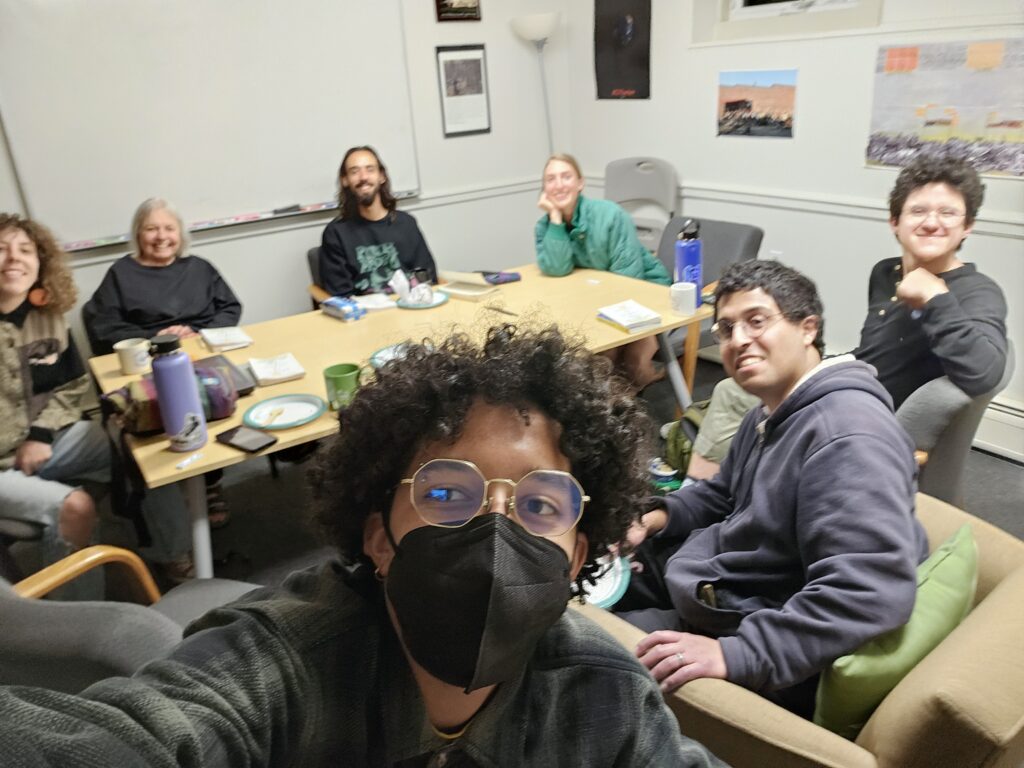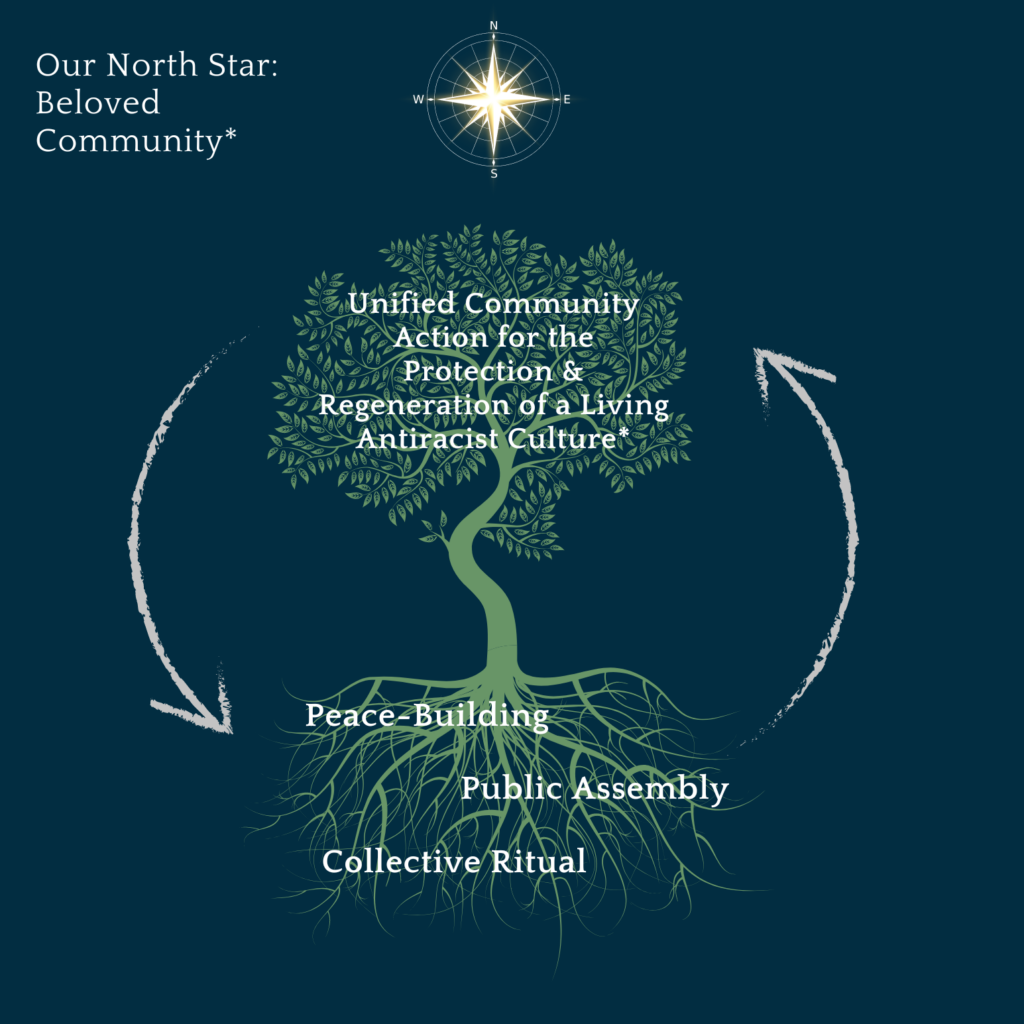
Peace-building work, regular public assembly & collective rituals all strengthen our ability to take meaningful action for the protection & regeneration of a living anti-racist culture, and in doing so move us closer to realizing Beloved Community.
The Three Currents of Our Ground Work
Community Action
We love the communities we live in here in Vermont. Sometimes that love necessitates that we act on behalf of the lives that we love. The Peace & Justice center has a 45-year legacy of acting for the sake of nuclear disarmament, racial justice, and a livable wage, to name a few of the issues that have had our focus. The three currents of our focus aim to lay the groundwork for us to take more effective and unified action toward our collective goals. This work almost always happens in coalition, meaning that we are mobilizing & organizing with other individuals and groups across the state for the sake of a common goal.
Some groups that currently have our attention are the Just Recovery Coalition, Vermont Racial Justice Alliance, the Richard Kemp Center, Vermont Coalition for Palestinian Liberation, Migrant Justice’s Milk with Dignity Campaign, and FreeHer Vermont.
We also currently fiscally sponsor over 20 groups, including groups like The People’s Farmstand, the Rutland NAACP, and the Waterbury Area Anti-Racism Committee, providing them necessary organizational support and services so they can focus on their work. If you or your group is interested in fiscal sponsorship, please email Kason (kason@pjcvt.org), our Director of Operations, to discuss next steps. You can also find more info about our Allied Groups by clicking on the button below.
As our political landscape shifts and changes, so does our focus. Climate disasters, mostly in the form of flooding so far in Vermont, are also a pressing concern that demand more energy and attention from all of us. We are in the very beginning stage of seeding a movement, the Lifeways Project, to address Vermont’s current water crises – annual flooding and the Lake’s status which is in violation of the Clean Water Act. As a community organization, we are always striving to respond to emergent needs as honestly and effectively as possible. We welcome & appreciate feedback from our community about where we need to put the heart of our focus in any given moment. Please use the contact form to get in touch with us or reach out to staff directly.
